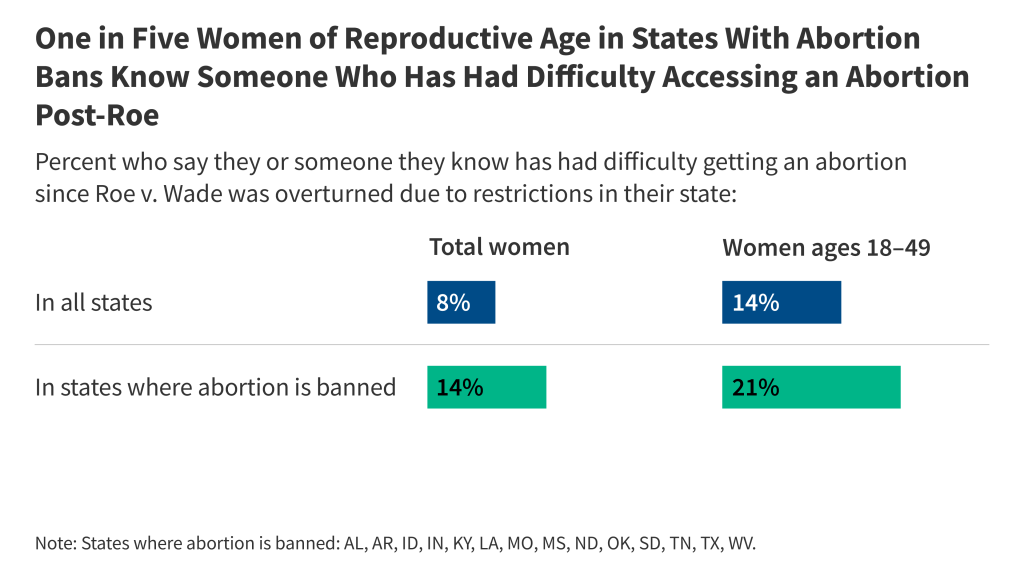
The independent source for health policy research, polling, and news.
One in Five Women of Reproductive Age in States with Abortion Bans Say They or Someone They Know Has Had Difficulty Accessing an Abortion Since Dobbs
According to new KFF polling, in states with abortion bans, one in five (21%) women of reproductive age (18 to 49) and one in seven (14%) of all women say either they or someone they know has had difficulty accessing an abortion since the Supreme Court overturned Roe v. Wade.
The survey finds that among all women, including in states where abortion remains broadly legal or limited by gestational period, 8% say they or someone they know has had difficulty obtaining an abortion since the Court’s decision.

The survey also showed that majorities of women across states, including in those with abortion bans, think abortion should be legal in all or most cases and support a range of policies that protect abortion access.
Large majorities of women across the United States support protections for doctors who perform abortions as well as the right to travel for medical care and protections for access to abortions in the case of pregnancy-related emergencies such as miscarriages. Furthermore, at least two-thirds of women in states where abortion is banned (66%), limited (68%), or legal (74%) support a guaranteed federal right to an abortion.
There were variations in the level of support for different policies asked about in the survey, likely reflecting the underlying differences in political beliefs among women. For example, just under half of women in states where abortion is banned support establishing a federal 16-week ban on abortions (45%) compared to one-third (33%) of women in states where abortion is legal.
Designed and analyzed by public opinion researchers at KFF, the survey was conducted online and by telephone from February 20-28, 2024, among a nationally representative sample of 1,316 U.S. adults, including 686 women and 380 women of reproductive age (ages 18 to 49). Interviews were conducted in English and in Spanish. The margin of sampling error is plus or minus five percentage points for the sample of women and seven percentage points for the sample of women ages 18 to 49. For results based on other subgroups, the margin of sampling error may be higher.